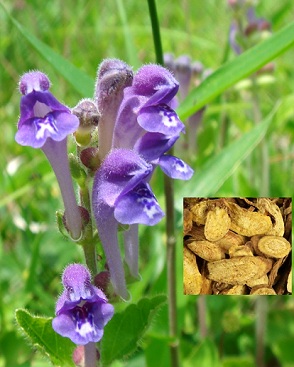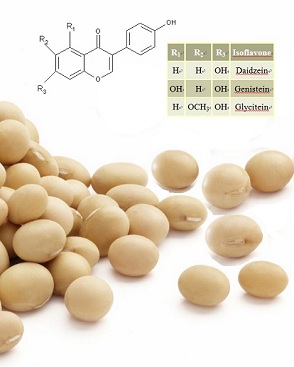- Plant-Based Protein
- Natural Plant Flavours
- Food and Dietary Supplement Ingredients
- Fruit Juice Powder
- Animal Nutrition Ingredients
- Water Soluble Ingredients
- Cosmetic Ingredients
- Unveiling the Therapeutic Potential of Rabdosia Rubescens: A Comprehensive Review
- What are the medicinal properties of Rabdosia Rubescens?
- Nutritional value of Orange Juice Powder compared to fresh orange juice.
- Processing Conditions and Nutritional Value of Orange Juice Powder
- Exploring the Versatility of Herbal Extracts in Food Flavors
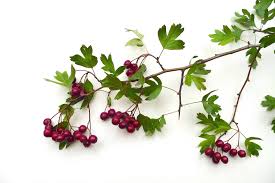
What are the health benefits of hawthorn leaf?
Welcome to our blog! Today, we are diving into the world of hawthorn leaf and uncovering its incredible health benefits. Whether you're a fan of herbal remedies or simply curious about natural alternatives, hawthorn leaf is definitely worth exploring.


Olive Leaf Extract and benefits,side effect, uses Natural Antioxidant
Olive leaf extract may have several potential health benefits, olive leaf extract comes from the leaves of the olive tree (Olea europaea) and has a variety of health benefits. Research shows oleuropein, the main component in olive leaf extract, has antioxidant, antibacterial, antimicrobial, anti-inflammatory, and immune-stimulating properties. Olive leaf extract has been used for the prevention or treatment of inflammation, infections, diarrhea, allergies.
Olive Leaf Extract and benefits,side effect, uses | Natural Antioxidant
Olive leaf extract may have several potential health benefits, olive leaf extract comes from the leaves of the olive tree (Olea europaea) and has a variety of health benefits. Research shows oleuropein, the main component in olive leaf extract, has antioxidant, antibacterial, antimicrobial, anti-inflammatory, and immune-stimulating properties.Olive leaf extract has been used for the prevention or treatment of inflammation, infections, diarrhea, allergies.
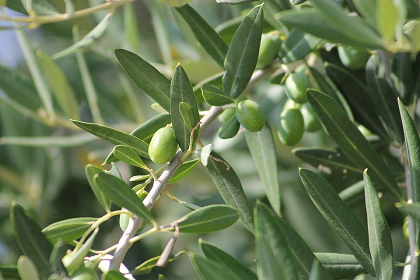
What you may get from us: If you're developing a product that contains plant active ingredients from Olea europaea .I think you can find the information or products you need here.
Simple production process in our factory: After the plant is collected, raw material will be processed by solvent extraction, separation and purification, filtration, concentration, drying and other steps to form the final products. We may also design a prouction process based on your special requirements.
Through the physical and chemical processes, those compunds you don't want was removed, and the compunds preferred was accumulated. Which make the products achieve the best effects.
How to use Olive leaf Extract powder: What you need is just use our products to formulate your products. It can be mixed with your other ingredients directly to make premix products. It can also be directly used for filling capsules or making tablets. And if your dosage form is tincture or solution, It can also be suitable. Easy to say, our products are ready for Formula products.
|
Olive Leaf Extract (20% oleuropein) |
||
|
CAS No. |
84012-27-1 |
|
|
Appearance |
Fine powder |
|
|
Color |
Light greenish Yellow ro light Brown |
|
|
Partical size |
Normally pass through 80mesh |
|
|
Pack size |
25 kg per paper drum |
|
|
Purity of active compunds |
Oleuropein 10%, 20% |
By HPLC |
|
For pricing or more information, please call 86 29 88444632 or send an email to Sales@nutraherbsource.com |
||
General Information
Common Names of raw material: olea oleaster, olea europaea, olea lancifolia, olea gllaic and olivier.
Latin Names: Olea europaea
Plant Description:
The olive tree is a modest evergreen tree that can grow to heights of 20 feet or even more. It produces many tiny bone-colored flowers and the bark of the tree is a light gray. The olive tree produces a deep purple fruit with a single seed that is just less than 1 inch in length, oval in shape with a pointed head on one end.
Constituents of Olive Leaf
The primary olive leaf constituents are secoiridoids (oleuropein and its derivatives), hydroxytyrosol, polyphenols (verbascoside, apigenin-7-glucoside, and luteolin-7-glucoside), triterpenes including oleanolic acid, and flavonoids (rutin and diosmin).
Oleuropein is a phenolic compound. Which is the main active ingredient in olive leaf extract
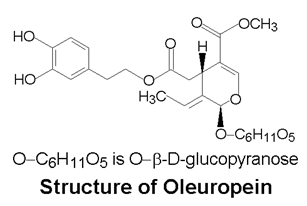
Suggested Properties:
Olive Leaf Extract is an antibacterial, antiviral and antiparasitic substance.
The leaves of the olive tree are both antiseptic (a substance that destroys microorganisms that carry disease without harming body tissues) and astringent (tending to draw together or constrict soft organic tissue). Both the bark and the leaves have important antipyretic qualities, which means they help to lower the body temperature to prevent or give relief from a fever.
Health Benefits of Olive Leaf extract
Hypotensive / Vasodilatory
The hypotensive property of olive leaf extract was first reported in 1951 and confirmed by Italian researchers a decade later. These results spurred numerous in vitro and animal studies on its hypotensive properties. In 1991 researchers at the University of Grenada's School of Pharmacy demonstrated that oleuropein exhibited the vasodilatory properties likely responsible for olive leaf extract 's reported hypotensive action. More recently, two studies demonstrate olive leaf extract suppresses the L-type calcium channel both directly and indirectly, resulting in vasodilation.
Antimicrobial
In 1969 researchers demonstrated olive leaf constituents are powerful in vitro inhibitors of numerous viruses, including parainfluenza, herpes, pseudorabies, and some forms of polio. Nearly every virus studied, including several cold and influenza viruses, was inactivated when exposed to a constituent of olive leaf extract, calcium elenolate. More recently, olive leaf extract was shown to be effective against human immunodeficiency virus (HIV), inhibiting its replication via neutralization of reverse transcriptase and protease. Olive leaf also prevents viral infectivity by inhibiting assembly at the cell membrane, interfering with critical amino acid production, and stopping viral shedding.
Olive leaf extract also inhibits many gram-negative and -positive bacteria, yeast, and parasites, including the malaria-causing Plasmodium falciparum. Its antibacterial activity is thought to be via either inactivation of cellular enzymes crucial for bacterial replication or direct attack on the cell membrane resulting in leakage of intracellular components, such as glutamate, potassium, and phosphorus.
Antioxidant / Anti-inflammatory
In 2007, researchers in Australia studying the antioxidant capacity of 55 medicinal herbs found olive leaf extract had the highest radical-scavenging activity of all herbs studied--more than twice that of Camellia sinensis (green tea) and Silybum marianum (milk thistle). Oleuropein has been shown to decrease the oxidation of low-density lipoprotein (LDL), both in vitro and in rabbits. Olive leaf extract also possesses anti-inflammatory properties (likely attributable to anti-complement activity) and inhibition of platelet aggregation and thromboxane [A.sub.2] production.
Hypoglycemic
The University of Grenada researchers who demonstrated olive leaf's vasodilatory properties also report it has a beneficial effect on blood sugar levels in animals. In rats with alloxan-induced diabetes, doses of 16 and 32 mg/kg decreased blood glucose values significantly and increased peripheral glucose uptake in a dose-dependent manner. Its luteolin and oleanolic acid constituents have also been shown to have an inhibitory effect on postprandial glucose increase in diabetic rats.
Indicated for:
Stabilising blood sugar levels, parasites (giardia, intestinal worms, malaria forming protozoa, microscopic protozoa, pinworms, ringworm, roundworm, tapeworms), boosting immune function, fighting infection, increasing resistance to disease, lowering blood pressure, abdominal chill, anthrax, arteriosclerosis, arthritis, autoimmune disorders, barium chloride and calcium induced arrhythmia, boosts energy levels, brain and nervous conditions, candida, cardiovascular conditions, chest complaints, chlamydia, chronic fatigue, chronic joint ache, chronic toenail fungus infection, colds & flu, cold sores, dengue, dental, ear, urinary tract and surgical infections, dissolves cholesterol, encephalitis, Epstein-Barr virus (EBV), fevers, fibromyalgia, gastric ulcers caused by H. pylori, gastrointestinal conditions, genital herpes, genital warts, gonorrhea, haemorrhoid pain-relief, hepatitis A, B, C, herpes I and II, HIV/ARC/AIDS, human herpes virus 6 and 7, improves blood flow, improves symptoms of chronic fatigue syndrome and related conditions, increases bile secretions, lupus, malaria, meningitis (bacterial/viral), mononucleosis, nervous tension, normalisation of heart beat irregularities, pneumonia, psoriasis, rabies, respiratory conditions, rheumatic fever, salmonella, severe diarrhea, shingles, shingles (Herpes zoster), sinus infections, soothes mucous membranes, staphylococcal food poisoning, streptococcus infection in throat, syphilis, toothache, toxic shock syndrome, trichonomas, tuberculosis, vaginitis, vasodilator effect on the smooth layer of coronary arteries, warts.
Precautions or side effects:
Olive Leaf Extract is considered generally safe, with no known side effects.
- Prev:Rosemary Extract and benefits,side effect, uses,dosage
- Next:Amygdalin and Benefits, Pharmacological Activity ,Toxicity




